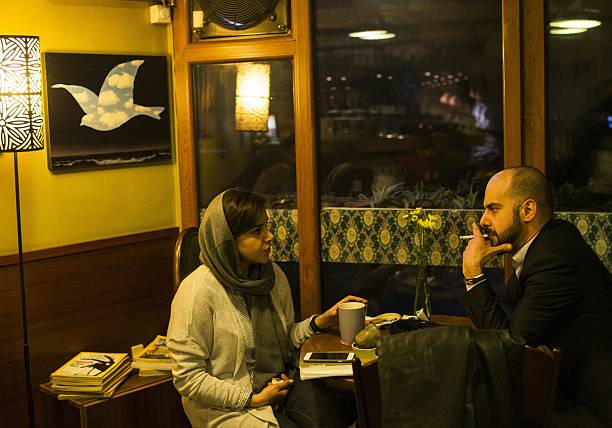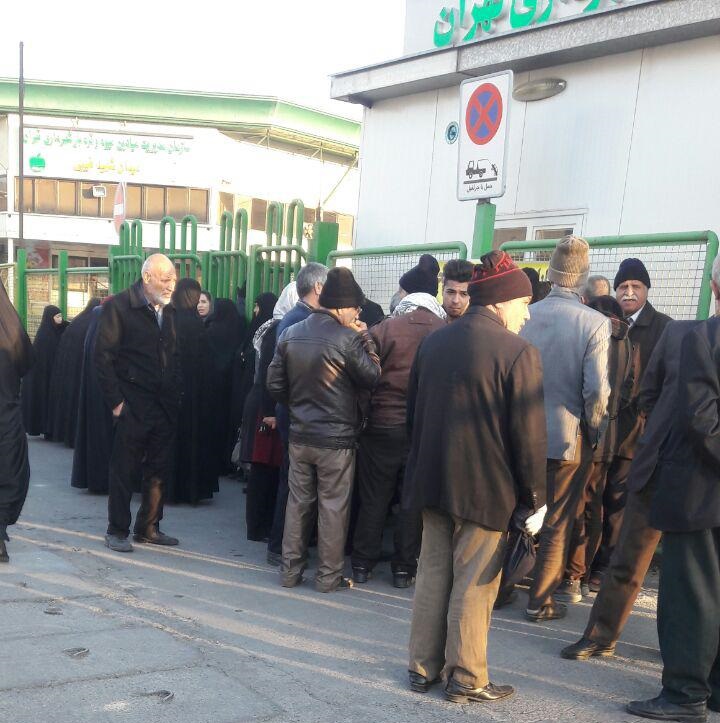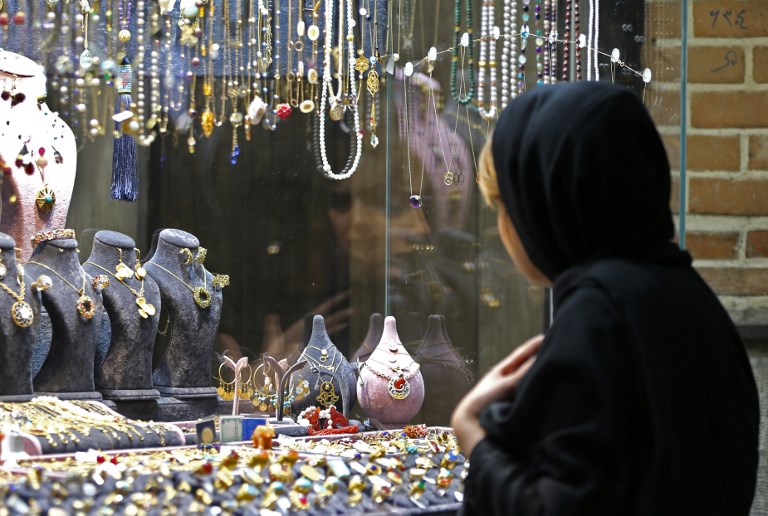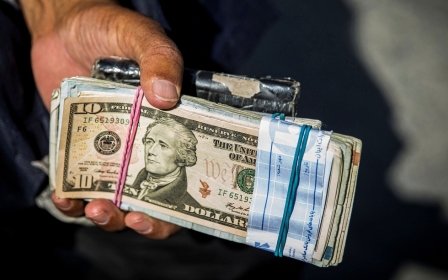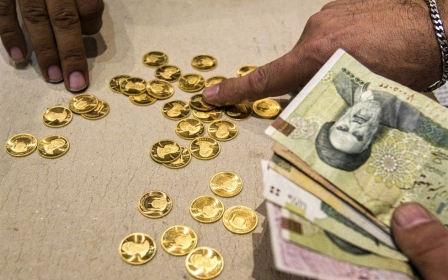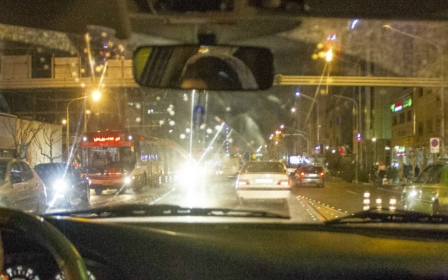Even the bazaars are quiet: How Trump's policies are crushing Iran's spirit
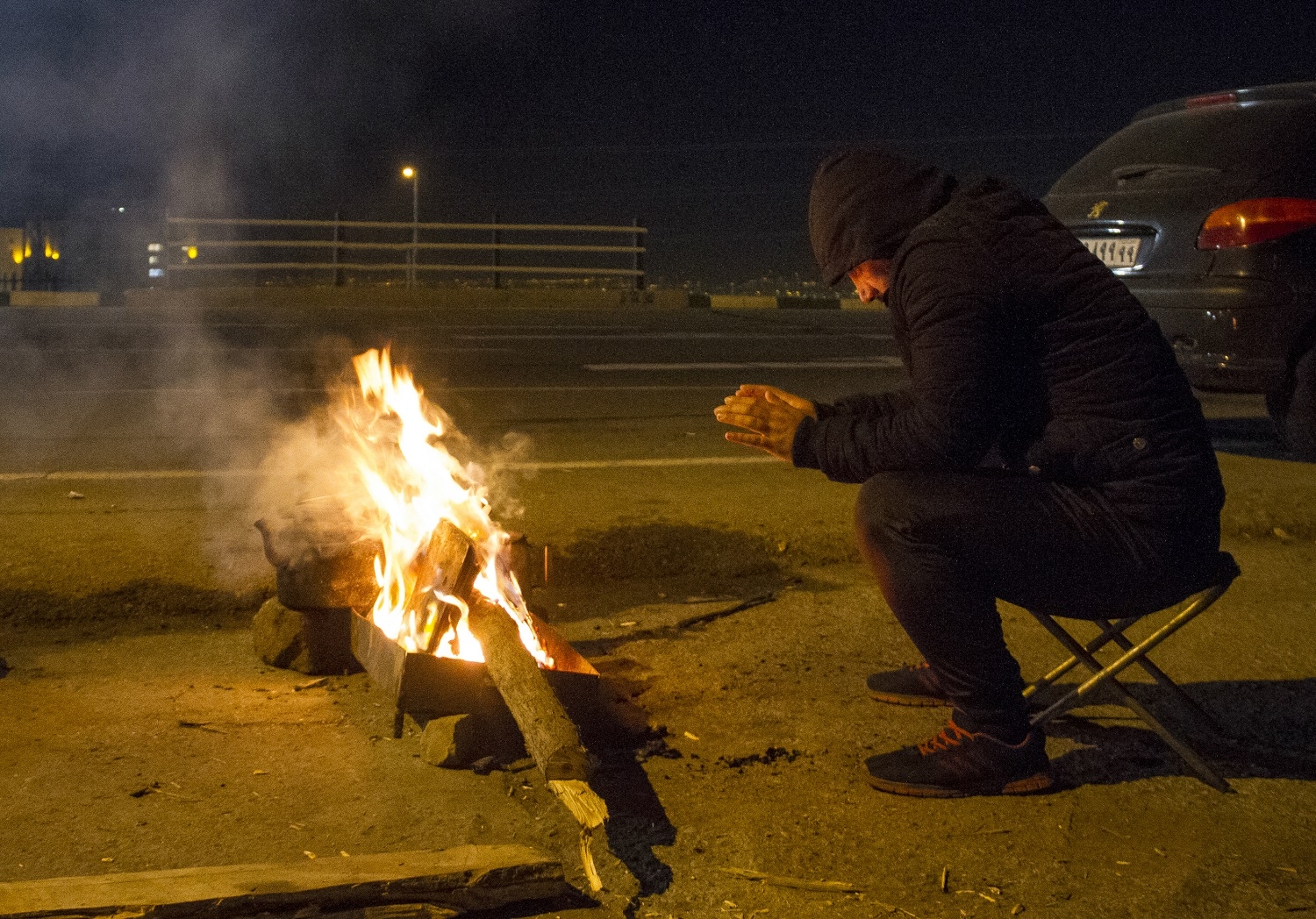
Puffing on a hookah in a coffee shop on Pich Shemroun Street in the centre of Tehran, Payam Saberi exhales a cloud of smoke.
The 26-year-old is a few months off finishing two years of mandatory military service. He studied history at university and this might have been the moment to start a career or pursue further studies.
This Trump guy thinks he is damaging the government, but he is dead wrong. We, the people, are being crushed under the pressure of sanctions
-Payam Saberi, 26
But the economy, after the US withdrawal from the nuclear deal and reimposition of sanctions, is in one of the worst conditions of his lifetime. "The economic situation is not good at all,” he says.
His friend, Amir Sanei, sitting across the table, has been working as a real estate agent for the past year after he earned an MBA. But there are no job guarantees for him - or anyone.
"The factories and industrial jobs are in serious trouble since the US withdrawal from the nuclear deal,” he says. “My uncle has a printing house and he recently laid off six of his 15 workers.”
“This Trump guy thinks he is damaging the government, but he is dead wrong. We, the people, are being crushed under the pressure of sanctions."
Iran's economy has slumped since the sanctions were reimposed last year, fuelling protests last summer. The value of the rial has risen this month since it hit a record low in late September, but it is still almost three times weaker than it was a year ago.
On Monday, Iranian President Hassan Rouhani said the government would file a legal case in the country against US officials over the sanctions. If the courts find against the officials, Iran will be able to pursue its complaint in international courts, he said.
But that may not be soon enough for Haj Mahmoud, the owner of the coffee shop where Saberi and Sanei are clients. His popular venue would have been bustling with 100 or so daily customers a year ago, but he says he’s now lucky to get 10, and is struggling to operate.
“I have dismissed two of my five workers,” he says, lighting a cigarette. “I can’t provide my customers with cheap priced hookahs and omelettes. The tomato paste used to be 3,000 rial, but is now around 18,000 rial.”
“Since the return of the sanctions, my business is falling apart. I can’t make enough money and I have become embarrassed in front of my family as I haven’t been able to provide them with things they want."
Queues for meat
Across Tehran is Ray City, an area populated since ancient times that was once far outside the capital but has now been swallowed up by the splurging metropolis, and is home to many factories.
Do people deserve to stand in a meat line ahead of the anniversary of the revolution?
- Seyyed Mohammad-Mehdi Hosseini Hamedani
Here around 100 people stand in a queue that runs along a street as people wait to buy meat.
Since the eruption of the currency crisis, diapers, tomatoes and now meat are among a laundry list of items that have become hard to get in Iran, causing prices to skyrocket.
A kilo of meat, roughly enough to feed five people, was selling for about $5, but has now increased to around $14. Some Iranians have opted for alternatives to meat like soya.
The government has tried to resolve the crisis by providing people with low-priced meat, bringing crowds like the one here in Ray City, frustrating a public now stuck in lines.
In February, ahead of the 40th anniversary of the Iran’s Islamic Revolution, the city’s Friday prayer leader entered the fray.
“Do people deserve to stand in a meat line ahead of the anniversary of the revolution?” said Seyyed Mohammad-Mehdi Hosseini Hamedani during a recent Friday speech.
In Ray City, Masoud, a 30-something who makes a living driving for Snapp, Iran’s Uber equivalent, says he’s willing to stand in the line to get government meat at half the market price.
"I used to buy four kilos of meat for my six-person family, now I have to ask my wife to cook chicken and vegetarian food as it is cheap,” he says.
Peyman Jahani, who serves coffee to employees at a private company, says some days he has to stand for up to two hours, but it’s not the waiting that bothers him.
“We are concerned about these meats not being healthy and have heard that these meats may be donkey meat, not beef,” he says.
Jahani is not alone in his concerns. Government officials and several MPs have raised the alarm in recent weeks, concerned that already exorbitant meat prices are increasing as a result of black market meat trading.
In late January, the conservative Farhikhtegan reported on a spate of middlemen importing sheep bought with dollars procured at low rates sanctioned by the government last April.
Then, they sold the sheep for nearly triple the price they paid, and invested the money they made on the black market, making huge profits on the backs of consumers.
This is only the latest incident of importers taking advantage of the government’s attempt to unify the dollar’s official and black market exchange rates.
As MEE reported last summer, the scheme set off a wild – and illegal - shopping spree using cheaply bought dollars. Textile companies imported sacks of beans. Auto manufacturers imported tea and coffee machines. Poultry businesses imported Apple iPhones.
In reaction to the smuggled sheep, the interior ministry has prohibited the transfer of the animals out of provinces to cut down on sales and has announced it will increase its monitoring.
But none of these decisions have brought the meat prices down.
Deep stagnation
In Tehran’s grand bazaar, the heart of Iran’s economy where traders sell everything from shoes to gold and hundreds of other items, deep stagnation is setting in where there were once busy exchanges.
Omid Ramezani, a merchant selling beauty creams, said there are some transactions here and there, but very few large ones and general uncertainty. Since the beginning of the currency crisis, the process of getting government permission to import items – as opposed to smuggling - has been long and drawn out.
“We don’t know that if, for example, we sell something that we have imported, the rial may depreciate the next day and then we face loss,” he said.
Some in the bazaar have started producing their own raw materials rather than importing from countries. One trader, for example, has started producing his own juice formula rather than buying it from China.
Mohsen Darvish-zade, a paper importer, said the quiet in the bazaar reminds him of when the US punished Iran when Mahmoud Ahmadinejad was president. His greatest hope? American domestic politics.
“I don’t know how the American government can claim to be advocates for the Iranian people while they have been pressuring them nonstop. At least, stop pretending,” he said.
“I wish the American people vote Trump out of the government, at least for the sake of nations, including Iranians, to breathe a little bit."
Middle East Eye propose une couverture et une analyse indépendantes et incomparables du Moyen-Orient, de l’Afrique du Nord et d’autres régions du monde. Pour en savoir plus sur la reprise de ce contenu et les frais qui s’appliquent, veuillez remplir ce formulaire [en anglais]. Pour en savoir plus sur MEE, cliquez ici [en anglais].


